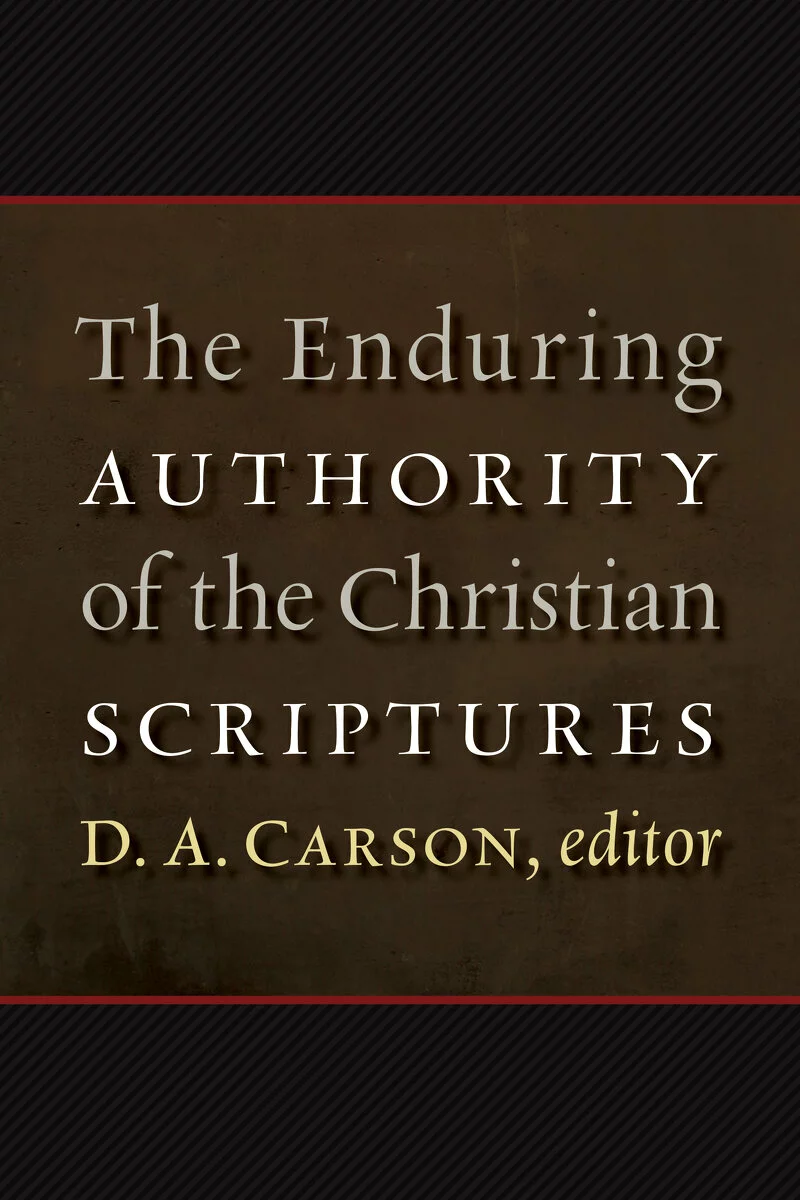Since epistemological presuppositions, hermeneutical approaches, worldview questions, evaluation of historical trajectories, exegetical decisions, and personal commitments all play a role in how Scripture is read, interpreted, and applied, all essays of this volume are relevant. Given the anti-conservative evangelical animus that one encounters in authors such as Bart Ehrman and the angry and sweeping criticisms of Klaus Berger leveled against the historical skepticism of much of the guild of biblical scholars at German universities..., the tone of the contributors to this volume is consistently polite and irenic. In contrast to a good deal of anti-conservative writing, we find here a genuine attempt to read and analyze and understand those with whom one disagrees. One does not have to be a prophet to be certain that anyone who takes the time to read this long book—and we need some books to be long!—will learn something that he or she has not known or known only superficially.
Eckhard J. Schnabel
Professor of New Testament, Gordon Conwell Theological Seminary
Bulletin for Biblical Research 27, no1 (2017): 150-152.
Reviewing this volume felt more like attempting to encapsulate a continent (in 1000 or so words!). D. A. Carson has edited a master volume comprising over thirty-five scholars and essays, covering a dizzying array of issues related to the doctrine of Scripture and its authority.... Minor shortcomings aside, this is simply an excellent volume, featuring the best and brightest of evangelical scholarship. It is worthy of becoming the standard reference point for those seeking to understand and respond to the variegated issues regarding the Bible's place in the church.
Uche Anizor
Associate Professor of Theology, Biola University
Trinity Journal 39, no 1 (2018): 111-114.
One of the useful features of the collection is that it makes available information on rather specialized and controversed subjects, which are often confined to specialised publications. Here responses to current theological mainstream flagships are brought into action: for example, the “Bauer thesis” that rises perennially from the ashes (cf. Bart Ehrman), regarding orthodoxy and heresy in harmony like ebony and ivory in the early church; the alleged pseudonymity of many of the texts of the NT; or the recent “invention” of inerrancy (should it not be 150 years ago and not 250, as on p. 22?). This collection gives academics who have written doctoral theses, or who have done detailed research in crucial areas, to take stage in a broader forum. This is certainly most valuable for reinforcing the dyke of evangelical theology against the strong tides running counter to orthodoxy.... Let’s hope then that the excellent stuff in this book is not shelf-bound fifteen years down the line, it deserves a lot more than that, and it should get it if another Donald Carson is raised up in the next generation to remind us that it is not all old hat.
Paul Wells
Professor Emeritus, Faculté Jean Calvin
Themelios 42, no 1 (2017): 196-200.
The book covers biblical, theological, philosophical, epistemological, and comparative religion topics. Many scholars might shy away from engaging in a critical analysis of these issues in relation to the nature of Scripture for fear of being branded or labeled something. But these respectable scholars bravely enter the fray and largely to excellent effect. I can say with some confidence, for example, that the studies by Hill, Gathercole, Vanhoozer, and Lints are extremely valuable. Such chapters carry the book a long way.... Scholars, students, and all who seek to understand the nature of Scripture should consult this work.
Brian I. Wright
Religious Studies Review 42, no 4 (2016): 293.
A deep love for the Scriptures and desire to lead biblical lives constantly shines through the chapters. All Christians should agree that, thanks to the primary, divine Author, the Scriptures are authoritative and truthful—reliably guiding belief and action. The volume under review persistently shows evangelical emphases.... All in all, this volume should be welcomed not only for its invitation to let the Scriptures guide Christian thinking and acting, but also for its repeated message that sinful human beings can evade or distort what the Holy Spirit wishes to say to us through the inspired Word of God.
Gerald O’Collins
Theological Studies 78, no 1 (2017): 227-229.
To say that this volume is comprehensive would be an understatement indeed! With over 1200 pages populated by 37 scholars with proven and often internationally recognized expertise in biblical studies, historical theology, and systematics, this book is a learned and robust affirmation of the authority of Holy Scriptures. The Bible is approached not with a hermeneutic of suspicion but one of confident faith that God himselfis speaking in and through the inspired Scriptures and that these writings are utterly reliable.... All in all, this is an outstanding contribution, demonstrating the depth and vigor of contemporary conservative and evangelical theology on biblical authority. It is well-worth reading and being carefully studied by Lutherans who receive the Scriptures as the word of God and are committed to proclaiming the one saving gospel of God’s justification ofthe ungodly according to these prophetic and apostolic writings.
John T. Pless
Assistant Professor of Pastoral Ministry, Concordia Theological Seminary
Logia 26, no 4 (2017): 51-52.
This massive volume presents a comprehensive analysis of biblical authority within the milieu of contemporary discussion, covering a wide range of issues associated with that topic. Inasmuch as biblical authority continues to be directly challenged or otherwise silently questioned from many quarters, this book aims to defend the authority of Scripture with renewed vigor, scholarly integrity, and intellectual depth.... This is a big, beautiful volume. The scholarship is of higher caliber than other collections of this sort. It easily stands as the new “go-to reference” source freating a wide-span of topics concerning the inerrancy and authority of the Bible. Our hats off and warm commendations to all the contributors!
Mark J. Beach
Professor of Ministerial and Doctrinal Studies, Mid-America Reformed Seminary
Mid-America Journal of Theology 27, (2016): 184-186.
In sum, Carson’s anthology serves as an important step forward in the evangelical response to debates surrounding the authority of Scripture. This book engages many of the pervasive arguments attempting to undermine the authority of Scripture and enables pastors, students, and teachers alike to have a more fully orbed understanding of the debates and issues involved. While not perfect, as no book is, this anthology is a timely addition in the age Charles Taylor has so adroitly described as the “Age of Authenticity”—an age in which “self-cultivation” is key and the experiential is elevated to a place ofprimary importance. In such an age, authority—especially the authority of Scripture—is not only devalued but is to be eschewed a priori. With the cacophony of competing voices in the church today—all attempting to have the final say on the issues of hermeneutics and the authority of Scripture—TEACS issues a clarion call for evangelicals that could hardly be more recommended and needed.
Gregory E. Lamb
Adjunct Professor of NT Greek, Southeastern Baptist Theological Seminary
Southeastern Theological Review 9, no 1 (2018): 113-115.


